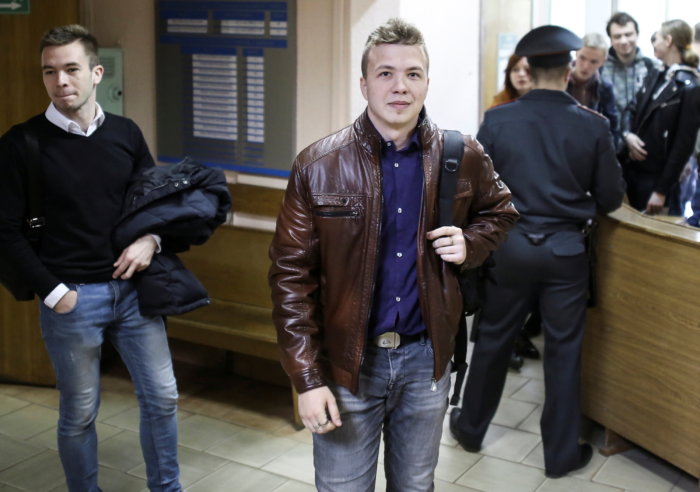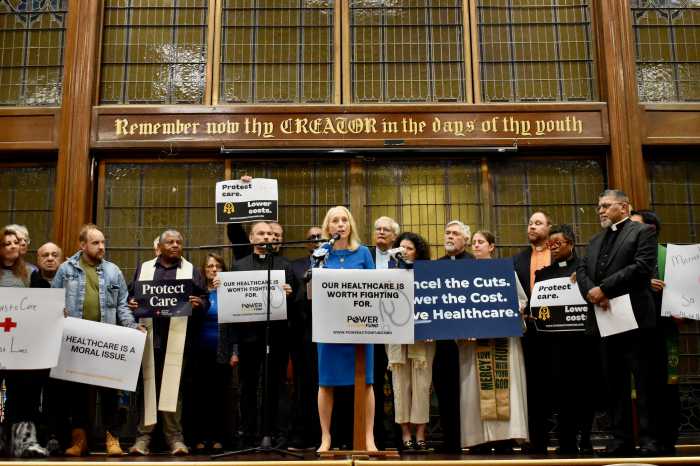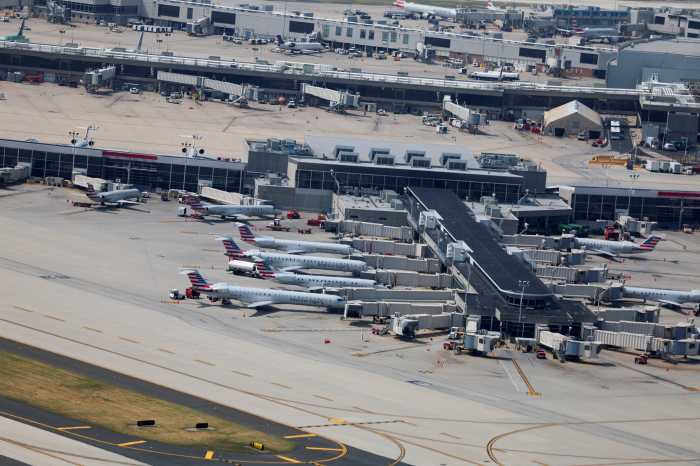By Matthias Williams, Andrius Sytas and Gabriela Baczynska
KYIV/VILNIUS – European leaders threatened on Monday to limit international air traffic over Belarus and possibly restrict its ground transport, after a Ryanair passenger plane was forced to land in an incident denounced by Western countries as “state piracy”.
Western leaders reached for the strongest language to condemn Sunday’s incident, in which a Belarusian warplane intercepted a flight between Greece and Lithuania and forced it down in Minsk, where a dissident journalist was arrested.
Countries called for the release of 26-year-old Roman Protasevich, whose social media feed from exile has been one of the last remaining independent outlets for news about the country since a mass crackdown on dissent last year.
“This was effectively aviation piracy, state sponsored,” said Ireland’s Foreign Minister Simon Coveney, using language that was echoed by a number of other countries. Swedish Foreign Minister Ann Linde said: “It is dangerous, reckless, and naturally the EU is going to act.”
The French presidency said a request had been sent to the International Civil Aviation Organization (ICAO) to suspend international flights over Belarusian air space. Banning the Belarusian state carrier Belavia from European airports would also be discussed, as well as unspecified measures regarding ground transport links.
A Latvian airline, airBaltic, became the first to announce it would no longer use Belarusian air space, and Cyprus-registered Avia Solutions said its Lithuania-based airlines would do the same.
Lithuania’s transport minister, Marius Skuodis, said Poland’s LOT and Hungarian airline Wizzair would follow suit and announced that all flights to and from Lithuanian airports must from midnight GMT avoid Belarusian air space.
Still, the options for Western retaliation appear limited. The Montreal-based ICAO has no regulatory power, and the EU has no authority over flights taking off and landing in Belarus or flying over its air space, apart from direct flights that originate or land in Europe. Belarus has shrugged off previous rounds of EU and U.S. financial sanctions.
Before a scheduled meeting of the 27 EU national leaders in Brussels, Lithuanian Prime Minister Ingrida Simonyte said she would urge partners to close Belarus’s airspace to international flights. She did not explain how this would be achieved.
She later proposed that institutions such as the European Investment Bank should not participate in projects that finance Minsk. Her government advised citizens to refrain from travel to Belarus and urged those already there to leave.
Belarus says it was acting in response to a bomb threat on the flight, which turned out to be a false alarm. It said on Monday its ground controllers had given guidance to the flight but had not ordered it to land.
State media said the decision to intervene had been ordered personally by President Alexander Lukashenko.
Russia, which has provided security, diplomatic and financial backing to Lukashenko, accused the West of hypocrisy. It noted that in 2013 a flight from Moscow carrying Bolivia’s president had been diverted to Austria after reports fugitive U.S. intelligence leaker Edward Snowden might be on board.

SANCTIONS HAVE HAD NO EFFECT
The EU and the United States imposed several rounds of financial sanctions against Minsk last year, which had no effect on the behavior of Lukashenko, a Russian ally who withstood mass demonstrations against his rule after a disputed election.
Lukashenko denies election fraud. Since the disputed vote, authorities rounded up thousands of his opponents, with all major opposition figures now in jail or exile.
Belarus lies on the flight path of some important routes in Europe as well as between Europe and Asia. ICAO, a U.N. body, said it was “strongly concerned” by the incident, which may have contravened the core treaty that governs global aviation, the Chicago Convention in force since 1944.
Flying around Belarus would slow airlines down and cost them money, and apart from the few mainly from neighboring countries that announced action it was not clear whether others would do so unless required. KLM of the Netherlands said it had carried out a risk assessment and was making no changes for now.
“We, like all the European airlines, are looking for guidance today from the European authorities and from NATO,” said Ryanair boss Michael O’Leary, who referred to the incident as a state-sponsored hijacking.
He also said he believed security agents had been on the flight and had disembarked in Minsk. That would mean the operation had effectively been coordinated with spies operating on the ground in Greece.
Given the security ties between Minsk and Moscow, some European politicians openly speculated whether Russia may have played a role, which would escalate an incident involving a small European pariah state into one involving a superpower.
Radoslaw Sikorski, a former Polish foreign minister and now member of the European parliament, tweeted: “If it turns out that the KGB operatives who boarded the @Ryanair plane highjacked to Minsk were Russian, then Russian personnel and Russian assets should also be sanctioned.” He proposed halting Russia’s huge Nord Stream 2 gas pipeline to Germany.
Minsk has shrugged off previous sanctions, consisting mainly of adding various officials to black lists which restrict their right to travel or do business in Europe and the United States. The EU was already working on a fourth round before Sunday.
Protasevich’s whereabouts were not made public. A university in Vilnius said one of its students, Sofia Sapega, 23, was travelling with him and had also been detained.
After Protasevich was arrested, flight 4978 was allowed to travel on to Vilnius, where weary passengers disembarked. One described the moment when the pilot had come on the intercom to tell passengers they were being diverted to Minsk. Protasevich immediately shot to his feet, knowing his time was up, and gave his laptop and phone to his companion.
Another passenger said Protasevich looked “super scared”: “I looked directly into his eyes and he was very sad.”






























